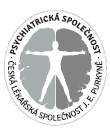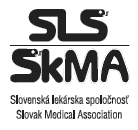Česká a slovenská psychiatrie

Časopis
Psychiatrické společnosti ČLS JEP
a Psychiatrickej spoločnosti SLS
původní práce / original article
KVALITA ŽIVOTA PO RESEKČNÍ OPERACI PRO FARMAKOREZISTENTNÍ EPILEPSII
THE QUALITY OF LIFE AFTER RESECTIVE SURGERY FOR MEDICAL REFRACTORY EPILEPSY
Preiss J., Vojtěch Z.
Nemocnice Na Homolce, Praha,
ředitel MUDr. V. Dbalý
ředitel MUDr. V. Dbalý
SOUHRN
Subjektivní kvalita života 50 dospělých pacientů před a po epileptochirurgické resekční operaci byla hodnocena psychometricky ověřenými českými překlady dotazníkových metod WPSI (Washington Psychosocial Seizure Inventory), QOLIE-89 (Quality of Life in Epilepsy Inventory-89) a ESI-55 (Epilepsy Surgery Inventory-55) a původními české metodami DSF (Dotazník spokojenosti a frustrace), SUPOS (Subjektivní pocity a stavy) a SUPOS-z (Subjektivní pocity a stavy-změna). Po operaci došlo v řadě oblastí ke statisticky významnému zlepšení kvality života, nejvýrazněji u pacientů, u kterých zcela vymizely záchvaty. Pro celý soubor nebyly zjištěny statisticky významné vztahy mezi předoperačními hodnotami kvality života a výsledky operace. Jsou však uvedeny dvě kazuistiky, ve kterých po nápadnostech v předoperačních odpovědích následovaly výrazné problémy po úspěšné operaci, zcela odstraňující záchvaty (nově vzniklé psychogenní záchvaty a nově vzniklé paranoidní projevy). Pooperační bezzáchvatové období je důležitým, avšak nikoliv jediným faktorem určujícím pooperační zlepšení kvality života. Sledování subjektivní kvality života může pomoci předcházet psychosociálním komplikacím po operaci.
Klíčová slova: epilepsie, neurochirurgická operace, kvalita života, WPSI, QOLIE-89, ESI-55.
SUMMARY
Preiss J., Vojtěch Z.: The Quality of Life after Resective Surgery for Medical Refractory Epilepsy
Goal: The presentation assesses the subjective quality of life of 50 adults with intractable epilepsy before and after neurosurgical resective surgery.
Methods: Psychometrically validated Czech translations of queostionnaires WPSI (Washington Psychosocial Seizure Inventory), QOLIE-89 (Quality of Life in Epilepsy Inventory-89), ESI-55 (Epilepsy Surgery Inventory-55), and the original Czech methods DSF (Questionnaire of satisfaction and frustration), SUPOS (Subjective feelings and states), and SUPOS-z (Subjective feelings and states - change) were used for the evaluation.
Results: After surgery, significant improvement in quality of life in many areas occurred, most strikingly in patients in whom seizures disappeared completely. In the whole sample,there were no statistically significant relations between presurgical values of quality of life and results of surgery. However, we present two case reports, in which, after conspicuous manifestations in presurgical evaluations, striking problems appeared after successful surgery which completely removed seizures, namely new psychogenic seizures and new paranoid manifestations occurred for the first time.
Conclusion: Postsurgery period without seizures is important, but not the only factor which determines postoperative improvement of quality of life.The investigation of the subjective quality of life can help to prevent the psychosocial complications after surgery.
Key words: epilepsy, neurosurgery, quality of life, WPSI, QOLIE-89, ESI-55.





